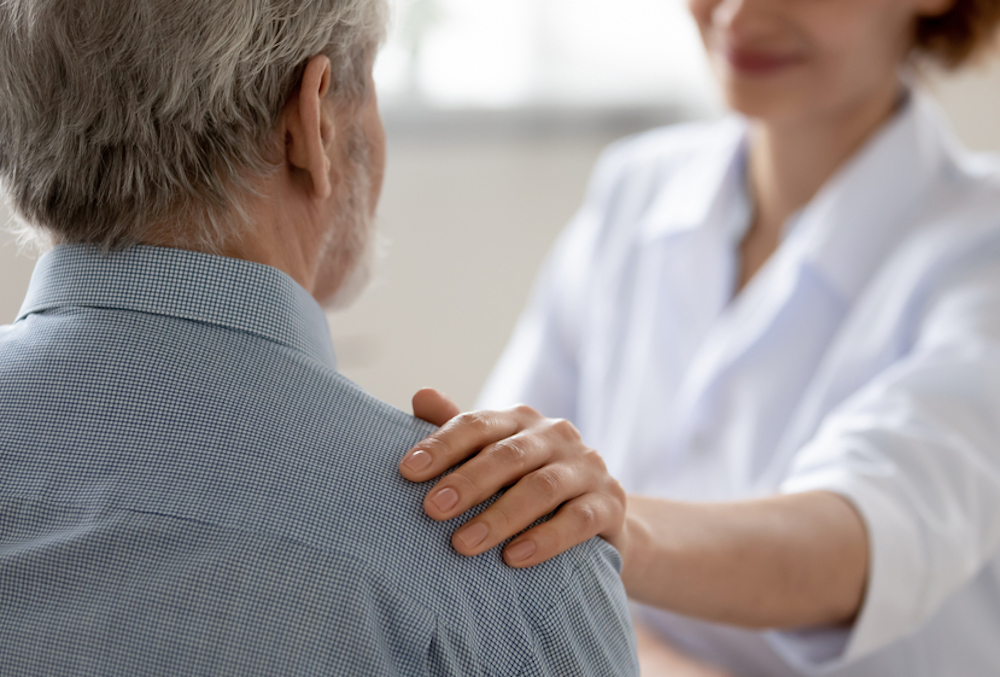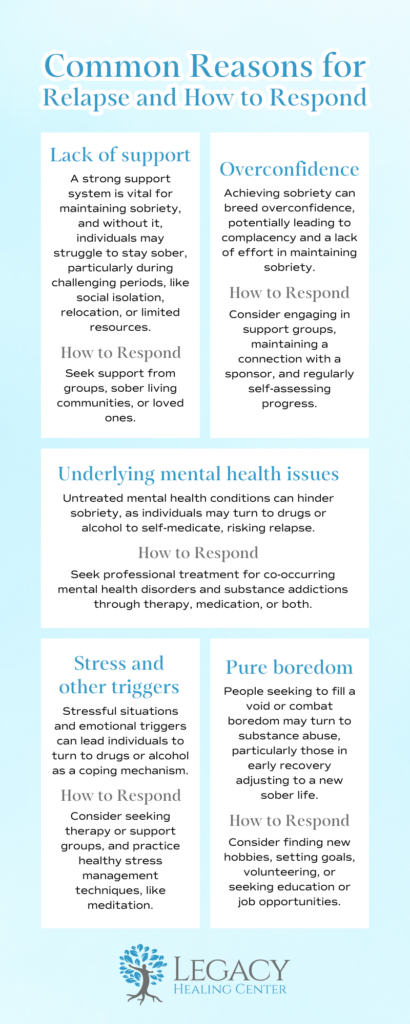
Common Reasons for Relapse and How to Respond
Legacy Healing Center Blog
One of the most common phrases shared among people healing from addiction is that recovery is a lifelong process. This means that the experience is not linear and may lead to road bumps that shake up a person’s progress. An important thing to note is that no matter the different reasons for relapse, there is always the chance to get back on track and keep moving forward. Learn more about why relapse happens and how you should respond to these situations with Legacy Healing Center.
The Definition of Relapse in Addiction
Relapse occurs when a person who has been abstinent from drugs or alcohol resumes their use. It is often seen as a failure, but it is important to understand that relapse is a part of the recovery process, and it is not a sign of weakness or a lack of willpower. Often, a person’s sobriety anniversary is reset when this occurs, meaning the process starts over again. Relapse can be caused by a variety of factors, and understanding these factors can help individuals prevent a relapse from occurring.
Common Reasons for Addiction Relapse
As unique as the experience of addiction can be to a person, so are the motivations that a person regresses into past habits. Still, there are some common reasons for relapse that are shared among many people in recovery.
These reasons can include:
- Lack of support – Having a support system is crucial to maintaining sobriety. Individuals who lack a proper support system may find it challenging to stay sober, especially during difficult times. This lack of support can be caused by social isolation, moving to a new location, or a lack of resources. To prevent this, individuals should consider joining a support group, finding a sober living community, or reaching out to family and friends.
- Overconfidence – After achieving sobriety, individuals may feel confident in their ability to handle triggers and temptations. However, overconfidence can lead to complacency and a lack of effort in maintaining sobriety. To prevent relapse caused by overconfidence, individuals should continue to attend support groups, stay connected with a sponsor, and regularly check in with themselves to assess their sobriety.
- Underlying mental health issues – Unaddressed conditions such as depression, anxiety, or bipolar disorder can make it challenging to maintain sobriety. Individuals may use drugs or alcohol to self-medicate, leading to a relapse. Once these previously unaddressed conditions appear, the individual will receive a dual diagnosis. Individuals with a mental health disorder and an addiction to drugs or alcohol should seek professional treatment for both their addiction and mental health issues. This may include therapy, medication, or a combination of both.
- Stress and other triggers – Stressful situations, such as relationship issues, financial problems, or work-related stress, can cause individuals to turn to drugs or alcohol to cope. Similarly, emotional triggers, such as depression, anxiety, or PTSD, can cause individuals to seek relief with substances. These individuals should consider seeking therapy or support groups, practicing mindfulness techniques such as meditation, or finding healthy ways to manage stress.
- Pure boredom – Individuals who feel bored or lack a sense of purpose may turn to abuse substances to fill that void. This can be especially true for people who have recently achieved sobriety and are adjusting to a new sober lifestyle. To prevent this, individuals should consider finding new hobbies, setting goals, volunteering, or seeking education or job opportunities.
Develop a Relapse Prevention Plan With Legacy
Our patients are not only set up for success during treatment but have resources put in place to help them succeed after rehab as well. After completing treatment in an addiction recovery program, patients are given the option to receive crucial aftercare support that helps them maintain the lessons they learned during treatment. Patients are equipped with a plan designed to consider their personal triggers so that they are best equipped to handle difficult situations outside of our facilities.
Should a relapse still occur, many of our Legacy Healing Center locations offer drug and alcohol detox programs that can effectively help you move through withdrawals safely and comfortably. These scenarios are not always easy, and remember, recovery is not a linear experience. The chance to heal is always present so long as we are here.
To learn how Legacy can help you along your own healing journey, call us today at 888-534-2295 and speak with a specialist about available treatment options.
Related Reading
Early Warning Signs of Relapse
Tips For Creating a Relapse Prevention Plan

